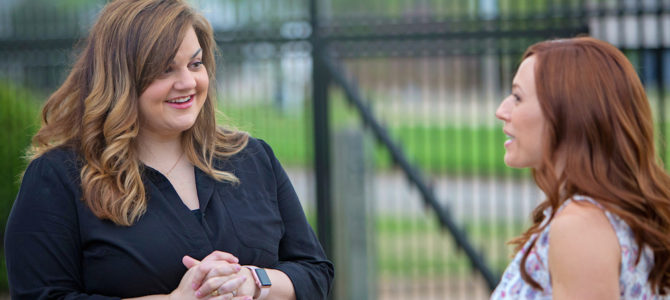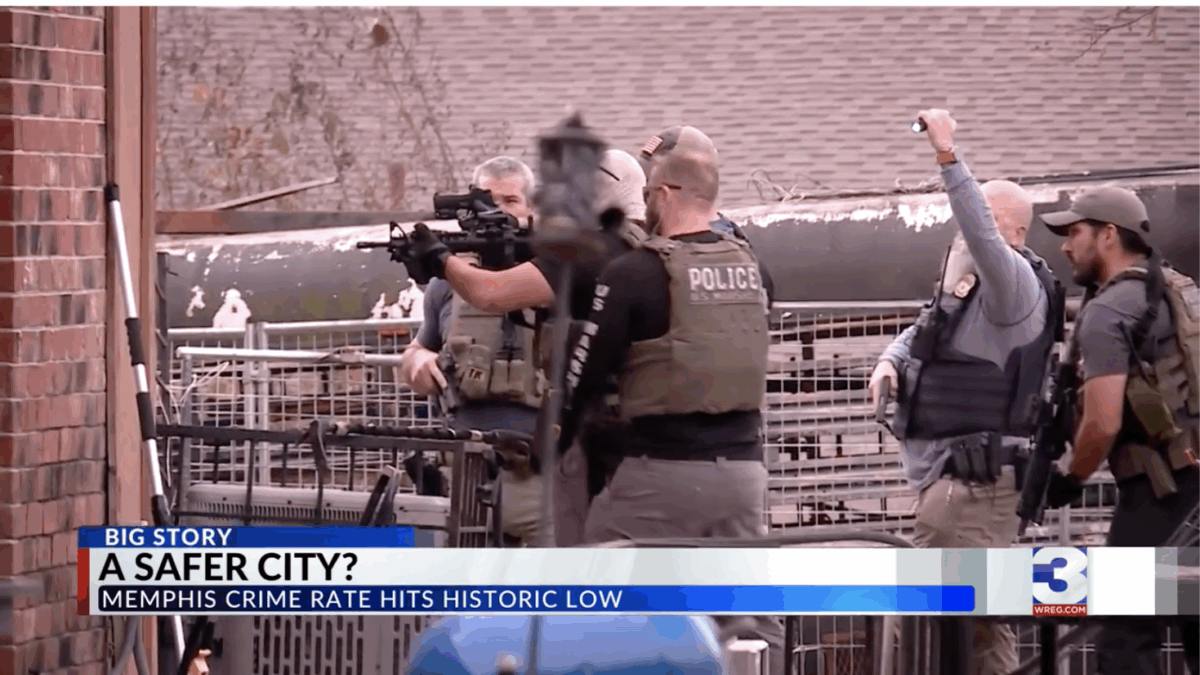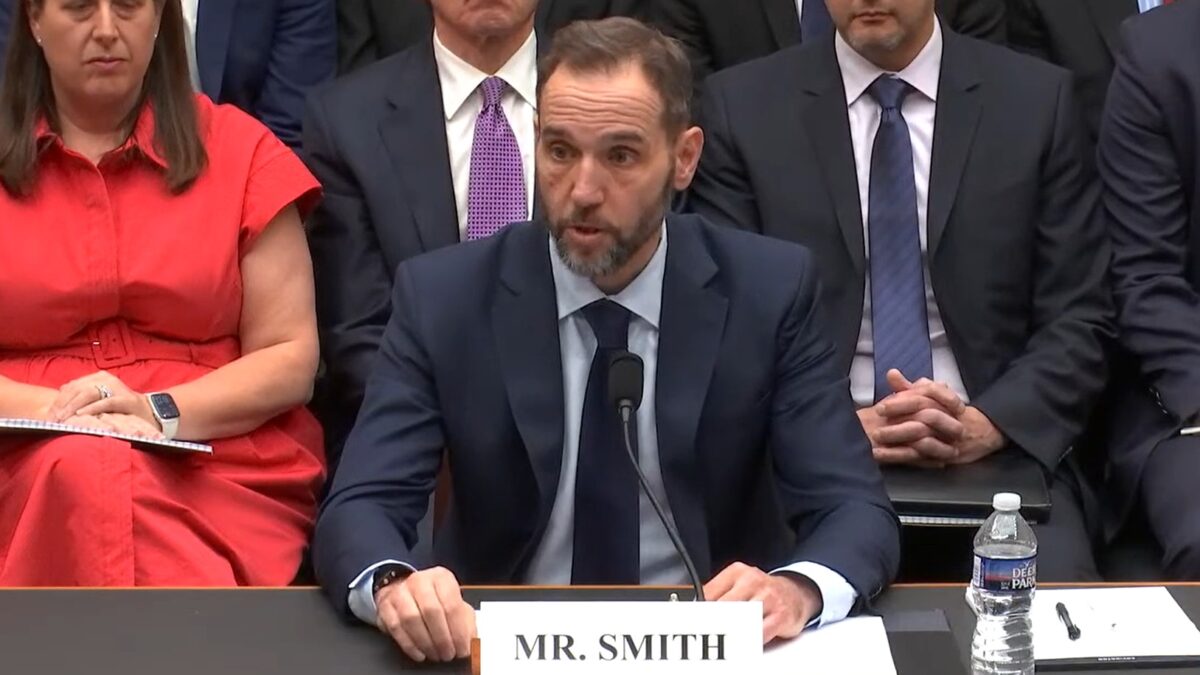
Last spring, comedian John Oliver aired a 21-minute exposé about pregnancy help centers on his HBO show “Last Week Tonight.” Such centers have come under fire from national media for offering counseling, ultrasounds, job training, and other free services to needy families. These nonprofit groups encourage couples to keep rather than abort their developing babies in the womb.
When Oliver wanted to put a face to the “anti-abortion movement,” as the show termed it, his producers did not look far. They pulled quotes from a speech delivered by Abby Johnson, a best-selling author who often speaks at events to benefit pregnancy centers. The show’s takedown of nonprofit, volunteer-based centers never mentioned her recent career history.
“I really wasn’t bothered by it,” said Johnson in a recent interview. “But I did respond to a lot of nasty emails. With some of them, we actually had real dialogue. One lady really came at me — all the ugly names you can call somebody. I responded by talking about my experience.” Since 2001, she’s gone from an idealistic college student, to a motivated medical professional, to an abortion industry whistleblower.
The HBO viewer soon wrote back in an email: “Oh, wow, I didn’t even realize you used to work at Planned Parenthood. I guess you have some credibility after being there for eight years.”
Transformation Story Coming to the Big Screen
In fall 2001, following a Planned Parenthood student recruitment drive on campus at Texas A&M University, Johnson signed up to be a volunteer abortion facility escort. She joined their full-time staff once completing degrees in psychology and counseling. Her positions at the abortion center in Bryan, Texas included media spokesperson and, by fall of 2009, clinic director.
Eight years after first walking in to help women, Johnson abruptly resigned her position at Planned Parenthood after witnessing an ultrasound-guided abortion. Several mainstream media outlets have regarded her with disdain ever since, seeking out any inconsistencies as if the mother of seven were an archenemy.
Attacks grew louder when her memoir released in 2010. Over the past four years, the best-selling book has been developed as a motion picture. Producers announced in September that “Unplanned,” an independent biopic funded in part by conservative activist and My Pillow founder Michael Lindell, will open in theaters on March 22, 2019.
Cary Solomon and Chuck Konzelman, known for the Pure Flix-produced “God’s Not Dead” franchise, adapted her book for the screen and helmed the project. The film stars Ashley Bratcher (“War Room”) as Johnson, along with Robia Scott, Brooks Ryan, Tina Toner, and Emma Elle Roberts.
“Unplanned” was shot over 31 days this summer in the small town of Stillwater, Oklahoma. The co-directors teamed up with producers Daryl Lefever and Joe Knopp, whose faith-based March release “I Can Only Imagine” earned $83 million. “Daryl and I filmed ‘Imagine’ in Oklahoma City over a year ago,” said Knopp. “It was a Texas story, and this is a Texas story. The state incentives for filming are better in Oklahoma than in Texas.” Released October, crime drama “Gosnell” was also shot in the Sooner State.
This May, select media were invited to the Stillwater film set of “Unplanned,” where directors, actors, and their real-life counterparts such as Johnson shared about the story and its cultural implications. A strict embargo on the project was lifted this fall, following concerns that pro-choice factions would attempt to disrupt the production.
The crew are confident their biopic, filmed on a $6 million budget, will find an audience. “No one in Hollywood has the track record that we have,” said Solomon. “When Daryl joined forces with us, we have a stellar résumé. Studios and investors have spent about 30 million dollars on the ten or so movies we’ve done collectively. Those films went on to make over 300 million dollars.”
Interviews reveal how “Unplanned” intends to navigate the most divisive issue in American society. It comes only months after “Gosnell” faced resistance for depicting the abortion industry’s dark side. After earning $3.6 million on a $2 million budget, the true crime drama is slated to hit Netflix in 2019.
On set, insights into “Unplanned” came from surprising voices. Their role in Johnson’s story and the movement she champions speak beyond typical movie junket promotion.
The Day She Switched Sides
When Johnson decided to quit her job as clinic director at Planned Parenthood, she drove a few doors down to a small nonprofit. She had long known this team from a distance. They prayed outside her abortion clinic constantly and often pleaded with women to change their minds.
Johnson parked in the back of the small Coalition for Life office, where a volunteer team provided pregnancy tests and counseling. Heather Gardner was at the front desk. (In recounting the story, she withheld some last names due to privacy concerns.)
“I saw this flash of red in the window, out of the corner of my eye,” says Gardner. “We knew Abby drove this bright red Mazda. Strictly as a joke, I yelled down the hallway: ‘Hey, I think Abby Johnson just pulled into our parking lot!’ Really, I thought it was a client coming in.”
Seconds later, she realized it was no joke when Johnson called from her cell phone and asked to enter the back door. Gardner walked down the hall to her coworker Bobby. “So Abby Johnson is on the phone right now and she really is in our parking lot,” she told him. “She wants to come inside.”
He pushed away from his desk at the news and turned to Gardner. “Okay, what did you tell her?” he asked.
“I put her on hold — I didn’t know what to say!”
“Well, let’s let her in.”
They escorted Johnson, still crying and with her scrubs soaked from tears, back to their counseling room. Coalition for Life staff members Shawn Carney and Karen soon joined them as Johnson “spilled her guts for two hours” according to Gardner. She confessed her feelings of guilt about Planned Parenthood’s work, including details of the abortion industry the pro-life advocates had never heard.
Although Carney and others embraced the conversion, Gardner was skeptical. “I didn’t believe Abby when she first left the clinic,” she said. “I figured she was a spy, or just trying to pull our leg.” Gardner recalls seeing her coworker Karen write her cell phone number on a slip of paper and give it to Johnson. “I saw her doing that and I thought, ‘You are crazy! What are you doing? She could be totally BS’ing us.’”
It took months for Gardner’s concerns to be dispelled, while Johnson and Carney figured out how to find her a job so she could quit. Once Johnson did, she and Carney appeared on a local interview that set off a national media firestorm interested in the story.
Facing Media Bias, Then and Now
Ironically, slanted reporting kept even Gardner — the former abortion clinic director’s own ad-hoc media scheduler — second-guessing the pro-life conversion Johnson experienced.
“At the time, I was still a baby in the pro-life movement and didn’t know about media bias,” said Gardner, who has been with Coalition for Life for now a decade. “I didn’t have preconceived notions about the New York Times or Salon and set up interviews when they called to talk with Abby. Then I would go and read the stories. The one in Salon was a total smear campaign against her and us.”
The narrative Planned Parenthood put forward about Johnson’s experiences caused Gardner’s doubts to resurface. “Is she a Trojan horse — is she lying?” Gardner recalls asking herself. “Because that’s what I’d been thinking this whole time. I didn’t how to refute it.” Months later, joining Johnson on a road trip to a pro-life prayer rally in Houston finally convinced Gardner of her integrity.
When the Bryan, Texas clinic closed in 2013, local pro-life advocates shifted. Nonprofit director Shawn Carney ultimately became president of a national pro-life prayer campaign known as 40 Days for Life. The group bought Johnson’s former clinic, which serves as their headquarters.
Gardner moved to Austin, where today she leads the Central Texas Coalition for Life. She describes the liberal-leaning region as a “battleground,” and has become keenly aware of how the mainstream media provides air support to increasingly uncivil pro-choice protestors.
“As sidewalk counselors, we have a big target on our backs,” said Gardner. “We get attacked all the time, face to face with clinic workers or people flipping us off. It’s a sign of initiation. But the John Oliver hit piece certainly led to an influx of new attacks online.” Her team tracks social media feedback for 20 area pregnancy help centers, and noticed a wave of negative reviews over the past year.
One recent campaign, targeting donors of pregnancy centers and claiming to expose deceptive tactics, backfired on pro-choice activists. “Many people doubled down when told to boycott these centers,” she said. “They told activists: ‘We’ve been donating two thousand dollars a month to this group. Thanks for sharing your thoughts. We’re now going to donate four thousand per month.’”
Battles Yet To Come
As for Johnson, since 2012 she has led And Then There Were None, which assists workers who desire to leave the abortion industry. She considers the nonprofit group based in Round Rock, Texas––about 30 minutes north of Austin––an important part of a multifaceted movement.
“What I found disheartening at Planned Parenthood was the only option we provided a woman in crisis was an abortion,” said Johnson on the movie set. “We didn’t do anything to help her get on her feet. In the pro-life movement, we’re focused on life from conception to death. Some groups focus on women who have faced abuse, others on adoption, on the elderly — or on abortion industry workers, as we do.”
She defends pro-lifers’ focus on lives in the womb. “If we can’t even bring these children into the world, there’s no hope of actually fixing the crisis a woman is in,” said Johnson. “That just compounds the problems already taking place in her life. Why not help fix the crisis, rather than abort the pregnancy?”
After years of research on Johnson, the co-directors enthusiastically praise her work. “They’re getting hundreds of people to leave the abortion industry,” said Solomon. “They say, ‘I know you’re stuck in your job. You come out and we’ll set you up with a new life,’” His co-writer Konzelman finishes the thought. “We’ll pay rent on your apartment. We’ll handle your car note. We’ll give you money for groceries for the months between jobs.”
The ministry has documented stories of 475 former workers (and counting) who, due to their outreach, have left the abortion industry. It’s one of many such altruistic efforts to save lives. Yet Johnson hardly expects slanted media coverage of the movement to let up — particularly with “Unplanned” slated for a spring 2019 release nationwide.
She believes even “fake news” can raise awareness of what they do. “The reason they continue to go after pregnancy centers is that they are a threat to [pro-choice] beliefs,” concluded Johnson. “In the U.S., we have almost four times the number of pregnancy centers as abortion clinics. Planned Parenthood sees that as a threat to their bottom line, monthly quotas and revenue goals.”
“They are going to try to do everything they can to discount the beautiful work these centers are doing.”








